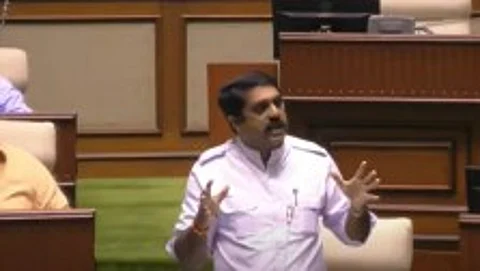

Legislators demanding a dedicated gig economy policy for the State while discussing the issue of the rising influx of gig economy workers employed by platforms such as Zomato, Swiggy, and Blinkit in the Goa Legislative Assembly.
They expressed concern over 8,000 delivery agents being brought into the State, along with vehicles bearing registration plates from other States, raising questions about legality, safety, and the marginalisation of local workers.
Leader of Opposition Yuri Alemao acknowledged the economic value of gig platforms but cautioned against overlooking critical concerns.
“There are benefits, but also legitimate issues regarding labour practices, compliance with transport laws, and exclusion of local youth. I am not against progress, but Goans should receive inclusive, ethical, and lawful benefits,” he said.
MLA Viresh Borkar pointed out that many delivery vehicles are registered outside Goa and alleged inaction by the Transport and Labour departments. He demanded a dedicated gig economy policy for the State.
MLA Vijai Sardesai criticised the lack of regulation, claiming that delivery personnel are using private vehicles for commercial purposes. “While it’s true that business can be done across India, the key issue is how the government plans to protect Goan interests,” he said.
MLA Venzy Viegas highlighted the precarious working conditions in the sector, noting the absence of job security due to exploitative hire-and-fire practices. He urged the government to implement the Social Security Code and provide legal recognition to gig workers.
MLA Carlos Ferreira raised road safety concerns, noting that delivery riders often drive at dangerous speeds to meet delivery deadlines, leading to accidents.
In response, Chief Minister Pramod Sawant acknowledged the gravity of the issue and assured the House that the government will soon introduce a comprehensive policy framework to regulate gig workers, particularly those in the delivery sector.
He admitted that the rapid rise in gig workers has led to law and order, transport, and health-related challenges. “This matter involves several departments, Labour, Transport, Home, and FDA among others. A coordinated system will be put in place,” he said. Sawant also confirmed that registration and police verification of gig workers will be made mandatory as part of the upcoming policy.